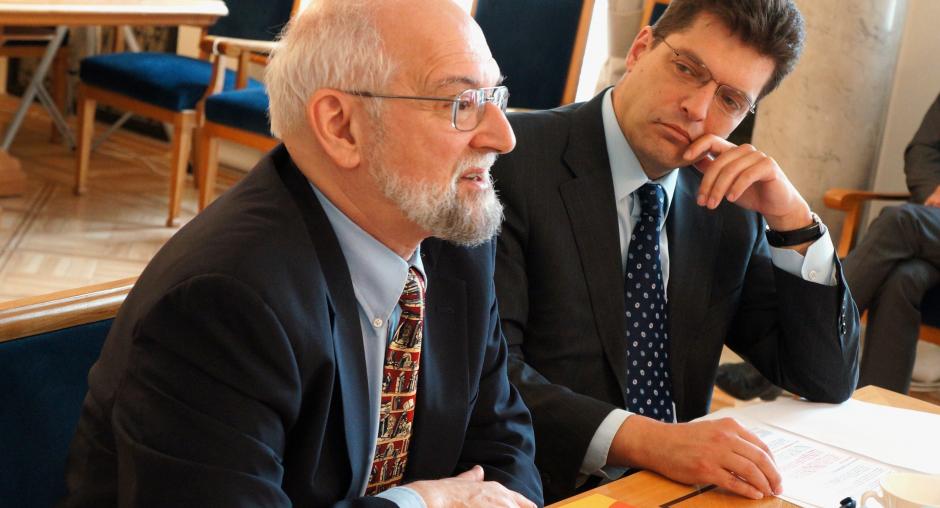OSCE/ODIHR expert group discusses challenges in political party regulation

New challenges in the regulation of political parties were the focus of the annual meeting of the OSCE Office for Democratic Institutions and Human Rights (ODIHR) Core Group of Experts on Political Parties, held in Warsaw on 17 May 2012.
The Group, consisting of seven prominent international experts in political party regulation, discussed the formation of political coalitions, promoting women’s participation in political parties, combating the abuse of state resources and the interface between political party legislation and election laws. The Group also looked at recent developments in the field, such as the increasing use of new technologies.
“The Core Group of Experts is an important body that helps ODIHR assist participating States, on their request, in ensuring that their regulations for political parties foster political pluralism and respect the rights of citizens to establish political parties and to seek political or public office, as declared in the OSCE Copenhagen Document,” said Ambassador Janez Lenarčič, the ODIHR Director.
“There needs to be a continued emphasis on upholding the separation between the State and political parties,” said Richard Katz, the Chairperson of the Group. “In this regard, it is crucial that incumbents must not be allowed to use state resources to their own advantage as candidates, and that all such abuses are addressed through effective legislation.”
The potential for co-operation with other expert bodies and international organizations was explored at the meeting, which included participants from the Council of Europe’s Venice Commission and the Group of States against Corruption (GRECO).
The Group also explored ways in which the ODIHR-Venice Commission Guidelines on Political Party Regulation could be further promoted when providing assistance to States.
The Core Group of Experts was established in 2011 to support ODIHR in its work in assisting participating States, upon request, on legislation related to political parties, and ensuring compliance with OSCE commitments and international standards.
